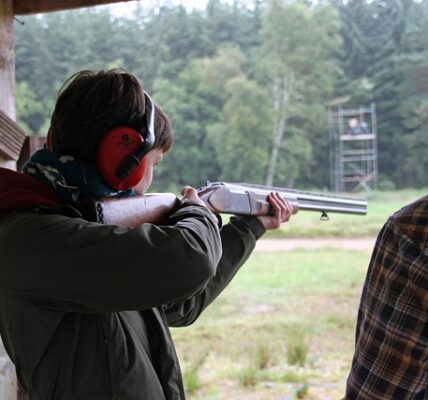Let’s be honest. The moment you read the word “mindfulness,” there’s a good chance you thought of yoga retreats, scented candles, and people talking earnestly about their “journey.”
For many men, it’s a concept that seems impossibly fluffy, a vague idea from a world we don’t quite belong to.
It feels like something for other people.
But what if we stripped away the jargon?
What if we treated it not as a mystical philosophy, but as a practical tool. A form of mental training as tangible as a set of weights or a good spanner?
Forget the fluff. This is a guide for men who care about results.
It’s about building focus, resilience. A bit of calm in a world that seems to be getting louder every day.
This is about learning a skill that can genuinely improve your life after fifty.
What Mindfulness Actually Is (And What It Isn’t)
First, let’s clear up the biggest myth. Mindfulness is not about “emptying your mind.”
That’s an impossible task, and trying to do it is the main reason most people give up after five minutes.
Your brain is a thought-generating machine. Telling it to stop thinking is like telling your lungs to stop breathing. It won’t work.
The real definition is much simpler.
Mindfulness is the skill of paying attention to the present moment, on purpose, without judgment. That’s it.
It’s about switching off the frantic autopilot. The one that has us worrying about tomorrow or replaying yesterday, and instead, focusing on what is happening right now.
You already know how to do this.
Think of a time you were completely absorbed in a task.
Perhaps it was the focus required for a tricky DIY project, the concentration on the line of a golf putt, or the simple act of savouring the first sip of a truly great pint. In those moments, the mental chatter fades into the background.
You are fully present. That is a state of mindfulness.
The practice is simply learning to access that state of focused calm more deliberately. Turning it from an accident into a skill you can call upon when you need it.
Why Bother? The Real-World Benefits for Men Over 50
This isn’t just about feeling a bit calmer; the benefits are concrete and backed by science. For a man over fifty, this practice is less of a luxury and more of a vital part of a long-term health strategy.
One of the most significant benefits is stress reduction. Constant stress floods your body with cortisol, which contributes to higher blood pressure, poor sleep, and weight gain. Mindfulness has been clinically shown to lower these stress responses. It’s a direct intervention that helps your body and mind step back from the brink, promoting better cardiovascular health.
Then there is the power of focus. As we discussed in the context of playing tennis, the ability to concentrate is a skill.
A sharper mind means more enjoyment from your hobbies, fewer simple mistakes, and a greater ability to engage with the people around you. It’s the difference between hearing what your partner says and actually listening.
Perhaps most importantly, it helps you master your own reactions. Life is full of irritations. Someone cuts you off in traffic, a project doesn’t go to plan, you get stuck in a queue.
The typical reaction is a flash of anger and frustration that can sour your mood for hours. Mindfulness gives you a crucial half-second of space between the event and your response. It allows you to notice the feeling of anger rising, take a breath, and choose not to be controlled by it. That is not weakness; it is the ultimate form of self-control.
Three Simple, Fluff-Free Exercises to Try This Week
You don’t need a special cushion or a silent retreat. You can start building this mental skill right now with exercises that take only a few minutes and can be done anywhere.
1. The Three-Minute Breathing Anchor
This is your emergency reset button. When you feel stressed or overwhelmed, find a quiet spot to sit in a chair. Set a timer on your phone for three minutes. Close your eyes and place your feet flat on the floor. For three minutes, your only job is to pay attention to the physical sensation of your own breathing.
Feel the air entering your nostrils and the rise and fall of your chest. Your mind will wander. It will start making lists and worrying. That’s normal. When it does, your task is simply to notice that it has wandered, and then gently guide your attention back to your breath. That’s the entire exercise.
2. The Mindful Walk
You already go for walks. For this exercise, dedicate just five minutes of one walk to a mindful practice. Instead of being lost in thought, bring your attention to the physical act of walking.
Feel the solid ground under your feet with each step. Notice the rhythm of your movement. Pay attention to what your senses are picking up—the feeling of the air on your skin, the sound of distant traffic or birdsong, the specific colours of the leaves on the trees. It pulls you out of your head and into the real world.
3. The Single-Task Brew
Our brains are frazzled by multi-tasking. For your first cup of tea or coffee of the day, make a pact to do only that one thing. Don’t scroll through your phone, don’t watch the morning news, don’t plan your day.
Just make and drink your brew. Pay attention to the process: the sound of the kettle boiling, the aroma as the hot water hits the tea bag or coffee grounds. When you take a sip, just notice the warmth and the taste. This simple act trains your brain to focus on one thing at a time, a surprisingly peaceful experience.
Ultimately, mindfulness is not about changing who you are. It’s a thoroughly practical skill that adds a powerful tool to your mental toolkit. It’s about becoming a calmer, more focused, and more resilient version of the man you already are. Give one of these simple exercises a try for a week. The only thing you have to lose is a bit of unnecessary stress.
0



